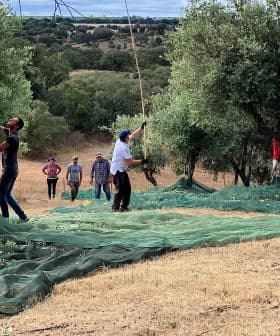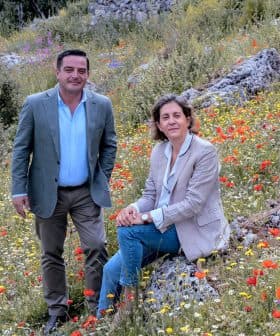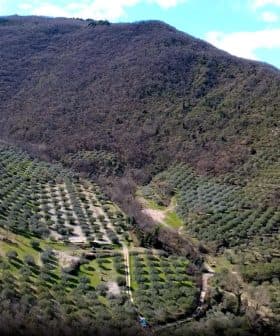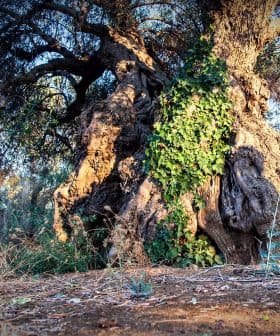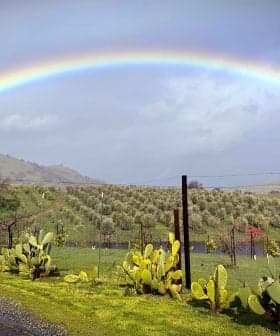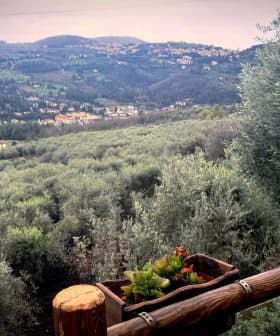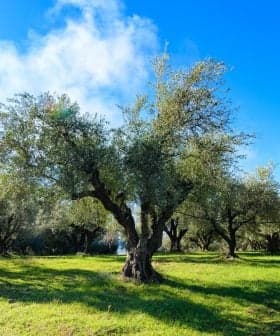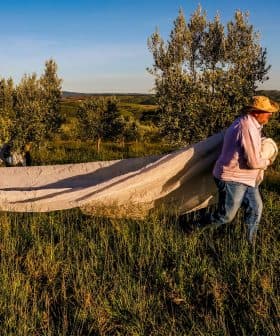Tuscan Producers Manage Difficult Harvest to Achieve Outstanding Results
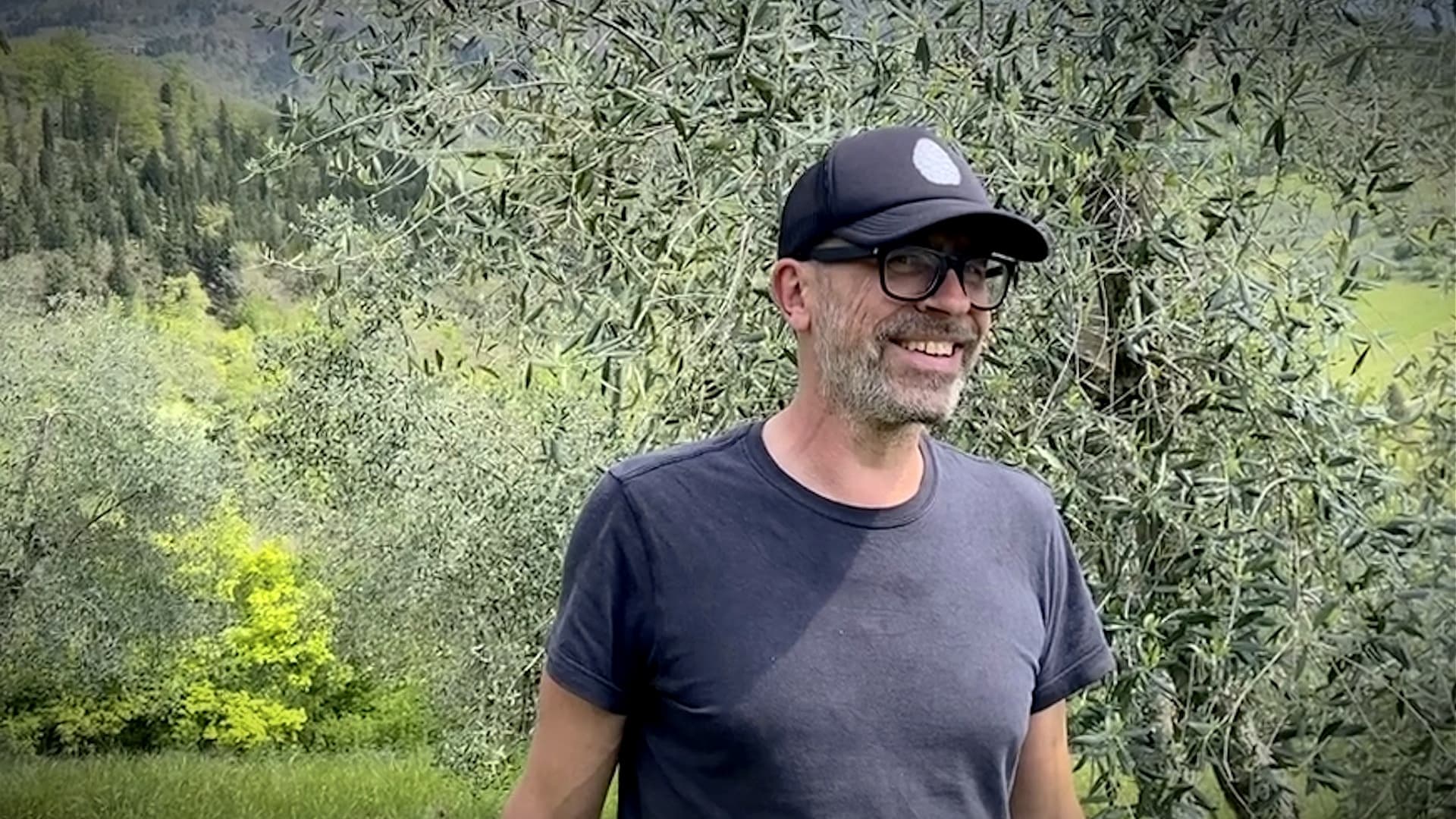
Tuscan producers overcame challenging harvest conditions to achieve remarkable outcomes, contributing significantly to Italy’s success at the 2023 NYIOOC World Olive Oil Competition. Award-winning extra virgin olive oils from Tuscany were made from autochthonous varieties, showcasing a commitment to safeguarding the land and promoting sustainable farming practices in the region.
Despite the challenging harvest conditions, Tuscan producers were able to attain remarkable outcomes.
Italy was again the most awarded country at the 2023 NYIOOC World Olive Oil Competition.
Producers from the Boot earned 173 awards from 224 entries, the third-highest success rate of any country with more than ten entries at the NYIOOC and consistent with previous performances by Italian producers.
The success of our oils at the NYIOOC, for which I congratulate the winners, is another great opportunity to stimulate the commitment of the companies to constantly improving the quality of their products.
Tuscan farmers significantly contributed to this success – they submitted a record number of entries and were one of the most represented regional groups in the Official Guide to the World’s Best Olive Oils.
See Also:The best extra virgin olive oils from ItalyAward-winning extra virgin olive oils made in Tuscany are mainly obtained from autochthonous varieties, cultivated with a particular focus on safeguarding the land, from the terraced hillsides of the Tyrrhenian coast to the rolling slopes that surround inland villages.
Like many other Italian and European growers, Tuscans faced an intense drought over the past year. Still, they overcame the threat of water stress and achieved a good yield with outstanding levels of quality.
“The success of our oils at the NYIOOC, for which I congratulate the winners, is another great opportunity to stimulate the commitment of the companies to constantly improving the quality of their products,” Tuscany’s vice president and councilor for agri-food, Stefania Saccardi told Olive Oil Times.
“The consumer who buys certified Tuscan oil has the certainty of buying an extraordinary product that recounts a fantastic territory,” she said, emphasizing the importance of preserving the region’s olive landscape and biodiversity.
“Tuscany promotes sustainable farming models with low environmental impact, in line with the objectives of the European Green Deal, the Farm to Fork strategy and the Common Agricultural Policy,” she said.
Among the winners is Dimora Girlandaio, which earned a Gold Award in its NYIOOC debut with a blend of Moraiolo, Frantoio and Leccino olives produced in Colle Ramole, outside of Florence.

(Photo: Dimora Girlandaio)
“The olive oil production has become, over time, a complementary activity to our high-end agritourism,” owner Marco Cecchi said. “Our 2,500 olive trees were replanted after the 1985 frost by my grandfather, who made such a blend first, then my father did it.”
“Today, we want the quality of our oil to be at the same level as our top-class hospitality, which is characterized by a search for authenticity through the connection with the territory that we intend to safeguard,” he added.
The estate was originally the country residence of the famous Renaissance painter Domenico Ghirlandaio, whose artwork is widespread in Florence and throughout Tuscany. “In their time, they already produced olive oil from these groves,” Cecchi said.
The company is now converting to organic practices but has long been promoting sustainable farming management; a photovoltaic system supplies its energy, and the producers have a lake for water recovery.
“This care for sustainability is also reflected in the choice of our suppliers, who are all local,” Cecchi said. “Already while renovating the structure and the estate, we chose to communicate our connection with this land and the commitment to preserve it by restoring nearby areas, including ancient dry stone walls and rural roads.”
The blend produced at Podere Il Montaleo also impressed the NYIOOC judges, winning a Gold Award for its intense, harmonic combination of Moraiolo, Frantoio, Maurino, Leccino and Pendolino olives.

(Photo: Podere Il Montaleo)
“My family has owned this property since the mid-1800s, and in 2009, I created the company focusing on high quality,” said Cesare Diddi Mussi, who manages about 6,000 trees on the hills between Casale Marittimo and Bibbona, in the province of Pisa.
“We have a company mill complete with a bottling line, all equipped with the latest generation machinery,” he added. “We pay great attention to harvesting the fruits at the right time and crushing them in a few hours.”
Varieties from other regions, such as the Tonda Iblea, were added to the original grove, which already hosted the aforementioned native Tuscan varieties and Lazzero from Val di Cecina.
Despite the drought, the harvest was satisfactory and excellent in quality. Using an irrigation system helped the olive grove to overcome the dryness.
“Our company is constantly evolving and experimenting,” Diddi Mussi said. “The mill is continuously updated to improve the quality of our products.”
“Close to it, immersed in the olive grove, we will soon build a structure with a kitchen where we will pair our oils and other local agri-food products,” he added. “We do a lot of research. The awards obtained over the years at the NYIOOC show us that we are going in the right direction.”
Another major accolade went to Le Balze di Fontisterni for an intense blend of Moraiolo, Frantoio and Leccino olives with notes of almond produced by Tom Luger in the village of Pelago, not far from Florence.

Tom Luger
Born in Munich, Germany, Luger moved to Italy in 1996. “My father’s grandfather was Italian from South Tyrol, and I had a strong connection with this country,” he said. “At the beginning of 2020, I took over this property to make an agritourism operation and produce oil, which for me has always been an extraordinary product.”
Shortly after taking over the property, the Covid-19 pandemic ensued and stopped agritourism activities. As a result, he undertook his first harvest.
“After a test production, I participated in the last year’s NYIOOC, obtaining a Silver Award. The Gold Award that I earned at the 2023 NYIOOC guarantees that the quality has increased, and I will continue to improve it,” he said.
His 250 trees are located partly on terraces and partly on rolling hills. The fruits are harvested by hand and quickly delivered to a local state-of-the-art mill. Throughout the process, from the management of the grove to the use of resources, Luger adopts a sustainable approach.
“Taking care of the environment where my olive trees grow is fundamental,” he said. “Aiming for such high standards in the context of climate change required much work, but this recognition repays all my effort.”
“The feedback from professional tasters who assess hundreds of oils from all over the world is very important, as it integrates the satisfaction of our consumers,” Luger added.
At its first participation in the NYIOOC, Frantoio di San Gimignano earned a Gold Award with its PGI Toscano.

(Photo: Frantoio di San Gimignano)
“Our family company was founded in 1950 with the establishment of our historic olive mill in Monte San Savino, in the province of Arezzo,” said Alberto Morettini. “In 2019, we acquired this second mill, which was established long ago as well, which we restored and relaunched.”
Close to the facility, amid the rolling hills of San Gimignano, between Siena and Florence, the Morettini company manages olive groves composed of Frantoio, Moraiolo, Leccino, Maurino and Leccio del Corno trees – the latter of which is used to produce the award-winning monovarietal extra virgin olive oil.
“We participated in the NYIOOC to present the high-quality products made in our mill on the global stage, to launch the Frantoio di San Gimignano brand,” he said, specifying that they press their fruits and those delivered by the local farmers.
The latest-generation technology of the mill includes vertical vacuum malaxers, which shorten the kneading stage, and a two-phase low-temperature decanter.
“It does not require additional water, allowing us to save this precious resource,” Morettini said. “To reduce waste, we reuse all the by-products, from the olive pits, that become biomass for the production of energy, to the olive leaves, that turn into an ingredient to produce a liqueur by infusion.”
“This award makes us very happy since it confirms the validity of the work we carried out in this new structure,” he added. “Here, we brought all our knowledge also to the service of the farmers of the area who aim at producing high-quality extra virgin olive oils. Our success indicates that our quality-oriented work can be very important also for the territory.”
Two other Gold Awards went to Badia a Coltibuono, whose olive groves are located between Gaiole in Chianti, in the province of Siena, and Cavriglia, in the province of Arezzo.

(Photo: Badia a Coltibuono)
“We are so glad to receive these prestigious recognitions for Albereto, which comes from our olive groves, and Badia a Coltibuono, for which we selected premium extra virgin oils from other Italian regions,” said Roberto Stucchi Prinetti. “We are first of all producers and now also selectors.”
“We are a family company that also offers hospitality and produces wine,” he added. “We started bottling olive oil in 1962 and have been growers for many generations – since 1846.” This is the year when they settled in the estate, which has at its heart a former monastery – in Italian ‘badia’ – that now hosts part of the agritourism and the cellars.
His blend combines Leccio del Corno, Frantoio, Pendolino and a small percentage of Maurino olives. The grove also includes rows of Leccino Minerva.
“Since the frost of 1985 destroyed the trees previously present in the estate down to the roots, the olive groves were replanted afterward,” Stucchi Prinetti said.
Perched on high hills about 550 meters above sea level, the olive trees face north, enjoying a cool, dry environment.
“This soil and climate features usually help avoid pests and keep the plants thriving,” Stucchi Prinetti said. “We do not even need an irrigation system.”
Yet, last year, the drought was so intense that it caused a fruit drop and a slight decline in production. However, the rains finally arrived just before the harvest and helped them to collect healthy olives, from which they obtained an excellent product.
“Our company has been certified organic since 1994,” Stucchi Prinetti said. “This shows the attention we have always paid to sustainability. We use cover cropping, composting and all the most sustainable techniques available to us to safeguard the environment and, therefore, to preserve the beauty of our land.”


